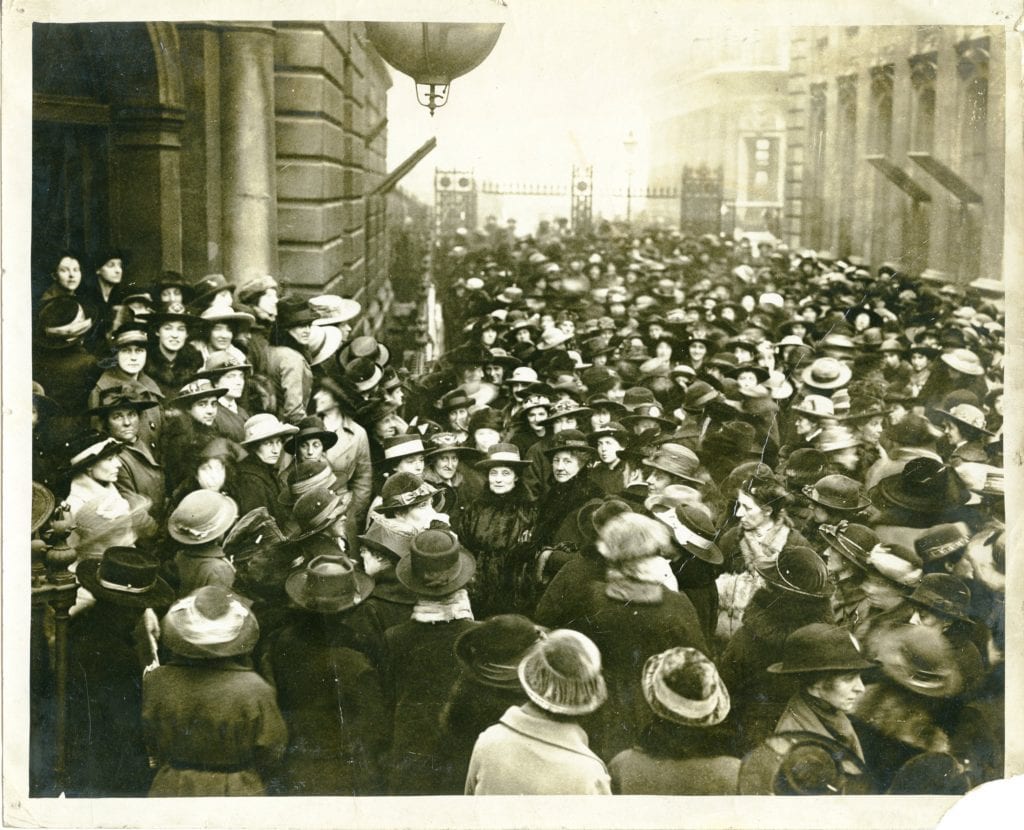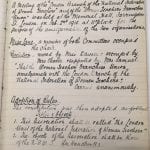Minute Books offer glimpses into the organisation of women teachers at the turn of the 20th Century
By utnvkh2, on 21 August 2017
Volunteers’ week may be long over but that doesn’t mean we can’t say thank you to our volunteers throughout the rest of the year! This time I would like to introduce some of the work done by one of our volunteers, Ashley Zuelke, who you may have come across before in one of the Volunteer Week posts. As well as volunteering in Special Collections we have been lucky enough to have Ashley volunteering with us in UCL IOE Archives. Ashley has worked on catalogue enhancement of Minute Books of the London branch of the National Union of Women Teachers (NUWT). The account which follows is a fascinating analysis of what she uncovered and gives an insight into the interesting stories that can be found in these unassuming looking volumes.
Minute Books Offer Glimpses into the Organisation of Women Teachers at the Turn of the 20th Century
By Ashley Zuelke
Summer Volunteer with Special Collections, Archives and Exhibitions studying for an MSc in Business Analytics and Management
In the early 1900s, British women teachers formed their own associations, branching out from the primary teaching organizations of the time to advocate for emerging issues including equal pay, pensions, and the management of “combined” boys and girls school departments. Reading the first minute books kept by the London Branch of the National Union of Women Teachers – then known as the National Federation of Women Teachers – is like sifting through snapshots of history taken every few months.
Entries from 1908 to 1922 reveal glimpses of the expansion of women’s rights and education in the U.K. before, during and after World War I. Discussions on proposed resolutions for national meetings reveal issues on which broad consensus prevailed, such as supporting aging women teachers, as well as points of disagreement, which included Parliament extending the vote to women. In history books, women’s suffrage seems like a natural course within a history punctuated with equal rights victories. The minute books, however, present a more nuanced picture with a spectrum of views and no certain results.

Demonstration by the London Unit against the allocation of the Fisher Grant, 1918
The year 1918 marked a watershed moment for the organisation: Parliament passed landmark education reform legislation and the group merged with the Women Teachers Franchise Union to create the London Unit of the National Federation of Women Teachers. The Franchise Union at the time was a politicised organisation, which prompted some members to urge that the group not advocate for political issues. The group did not accept those proposals, though the organisation unanimously postponed advocacy on political issues during the war. With the merger, the group codified its practices into a constitution and began to persistently advocate for equal rights and the implementation of the Education Act of 1918, which was designed to improve school conditions and to study the UK educational system – objectives for which public support increased dramatically after the war.
Within 10 years, the group grew from a handful of regular members to more than 50 subscribers in attendance at annual meetings representing nearly all parts of greater London. The organisation’s behaviour evolved as well. Initial notes that focused mostly on social gatherings and group administration became disciplined accounts of proposed resolutions and active correspondence. Early schisms dissolved as rules and procedures were finalised. By 1916, the group even published meeting minutes in newspapers as public record. Members, some of whom participated in the group for more than a decade, built seniority. The group developed a clear, ringing voice on important issues. The women’s dedication is evident, with many lines commemorating achievements of group presidents and expressing condolences for members with illness or those who passed away.
The minute-book entries represent many hours of work for members outside the classroom, often on weekends. They offer readers a new perspective on events in the first two decades of the 20th Century. The books show how one organisation developed, enduring setbacks and victories on a path that many organisations today would likely recognise. And the books open windows into time as a group made changes and won rights for women and children that today many of us could not imagine doing without.
—————————————————————————————
Thanks so much Ashley for writing up such an interesting account of the early minute books of the NUWT and for all your work in expanding and enhancing the catalogue description for these.
For more information on the National Union of Women Teachers please refer to our libguide or our online catalogue.
All images ©UCL Institute of Education Archives
 Close
Close





